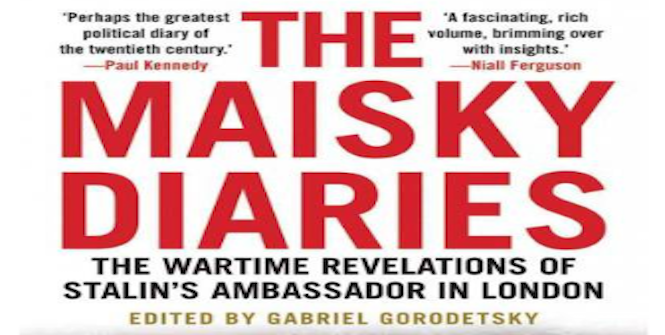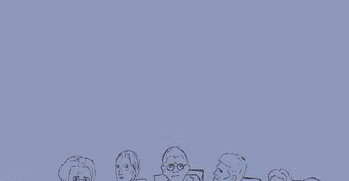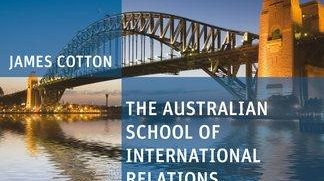Reading Room: The Maisky Diaries

The Maisky Diaries – a major resource in historical diplomacy.
Between 1932 and 1943 Ivan Maisky served as the Soviet ambassador in London. In pre-revolutionary days he had befriended such British cultural figures as H. G. Wells, the Webbs and G. B. Shaw; in the 1930s he became an intimate of most British leaders who mattered, especially Lloyd George, Anthony Eden and Winston Churchill.
His diary, brilliantly edited and excerpted by its discoverer, Gabriel Gorodetsky, contains highly detailed and immensely revealing accounts of his discussions and relations with these figures. The record of the history of diplomacy in this era has been considerably enriched by this exceptional publication.
A convinced communist, Maisky was also a highly perceptive student of human nature. His depictions of British political and cultural figures are replete with shrewd character portraits and witty (or sometimes acerbic) observations. His long intimacy with Churchill and the careful notes he made of many of their meetings comprise nothing less than a new resource for the most important British leader of the century and especially for his early wartime role.
Maisky’s passionate denunciation of such appeasers as Halifax and his insights into the complex character of Beaverbrook are minor gems in themselves. For students of the 1930s and of the diplomacy of the war, Maisky will become a standard and major source.
There are also fascinating asides on a host of matters. On his visit to an East End air raid shelter in October 1940, when introduced to the crowd and compelled to make a speech, he finds his listeners singing the Internationale (which, he has to explain to his host, Admiral Edward Evans, was the Soviet national anthem). As he observed sagely, “This is how the East End greets the Soviet ambassador today. If the war lasts two more years, Piccadilly will greet him in a similar way”.
In 1943, Maisky attended as an honoured guest the solemn commemoration of Red Army day at a dignified ceremony in the Albert Hall, the backdrop a gigantic red hammer and sickle banner.
An extraordinary survivor amongst Soviet official personalities—his Polish, Jewish and Menshevik origins an increasing liability during a period in which even one of these characteristics usually led to imprisonment or liquidation—Maisky was nevertheless remarkably bold in his dealings with Moscow. He often attributed his own advice to his British contacts—Eden was a favourite—when he considered that Moscow might be receptive.
He even sent communications direct to Stalin when he thought that British policies more advantageous to the Soviet Union might possibly result. Stalin was sometimes astute enough to recognise good advice when he read it, his masterful handling of Churchill during the prime minister’s first visit to Moscow in August 1942 drawing upon the ambassador’s insightful pen portrait of his interlocutor and accompanying account of his weaknesses and failures.
However, Stalin and Molotov had little grasp of the advantages that flowed from the extraordinary social access that Maisky enjoyed and increasingly chose their officials on the basis of their lack of imagination and complete obedience. Accordingly, the era of Maisky and Litvinov (the latter withdrawn from Washington also in 1943) gave way to that of Vyshinsky and Gromyko.
Though Maisky acted as a translator at both Yalta and Potsdam, he never again occupied a role of any importance, and in 1953, weeks before Stalin’s death, he narrowly escaped execution and was sentenced to imprisonment for alleged espionage (to be exonerated belatedly in 1955).
The production and survival of this document has been both a personal and a historical miracle.
Gabriel Gorodetsky, The Maisky Diaries: The Wartime Revelations of Stalin’s Ambassador in London, trans. Tatiana Sorokina and Oliver Ready, Yale University Press, 2015
James Cotton FAIIA is professor emeritus at the University of New South Wales, Australian Defence Force Academy, Canberra and a fellow of the Australian Institute of International Affairs.





